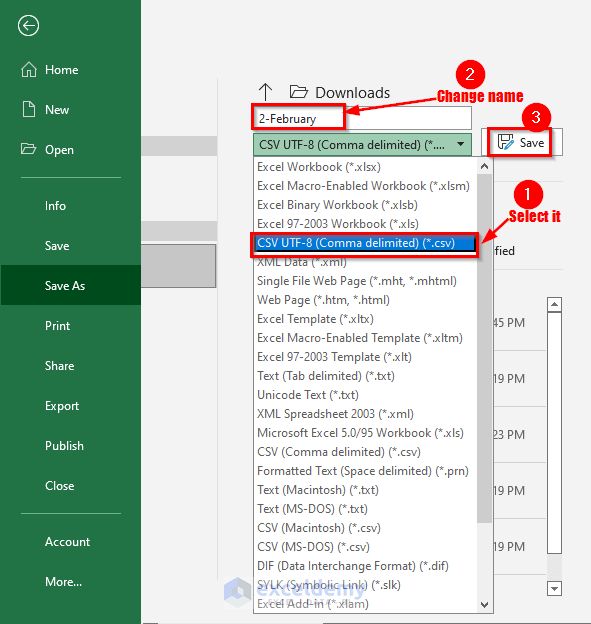5 Simple Ways to Merge Excel Sheets Quickly

Merging Excel sheets efficiently is a skill that many professionals in data analysis, accounting, and other fields need. Excel offers several methods to combine data from different sheets or workbooks into a single workbook or worksheet. Here are five straightforward ways to achieve this:
Method 1: Copy and Paste

Often overlooked due to its simplicity, copying and pasting is one of the easiest methods to merge Excel sheets:
- Select Data: Open the workbook with the sheets you want to merge. Select the data in the first sheet you wish to merge.
- Copy: Right-click and choose 'Copy' or press Ctrl + C.
- Paste: Move to your target workbook or sheet. Right-click where you want to paste the data, and select 'Paste' or press Ctrl + V.
- Repeat: Repeat for each sheet you need to merge.
⚠️ Note: This method can be time-consuming for multiple sheets or large datasets.
Method 2: Excel's Consolidate Feature

If you're dealing with similar data ranges from multiple sheets, Excel's Consolidate feature is very handy:
- Select the Destination Range: Choose where you want the consolidated data to appear.
- Go to Data Tab: Click on the 'Data' tab, then select 'Consolidate' from the 'Data Tools' group.
- Select Function: Choose a function like 'Sum', 'Count', or 'Average' based on your needs.
- Add Reference: Click on the reference box to highlight the range from your first sheet. Repeat this step for each sheet you're consolidating.
- Create Links to Source Data: Check this option if you want changes in the source data to update the consolidation automatically.
- Finish: Click OK to consolidate the data.
👉 Note: This method is ideal for numeric data but less effective for text data consolidation.
Method 3: Using Power Query

Power Query provides powerful tools for combining data from multiple Excel sheets:
- Open Power Query: Go to the Data tab, click 'Get Data', then 'From File' and choose 'From Workbook'.
- Navigate to Workbook: Select the workbook containing your sheets.
- Combine Sheets: After selecting the workbook, you'll see all sheets listed. Right-click on the first sheet and choose 'Combine & Load'.
- Choose Merge Option: Select how you want to merge the data (e.g., 'Merge All' for matching columns or 'Append All' to stack data vertically).
- Preview and Load: Review the combined data and click 'Load' to get the merged data into Excel.
| Action | Description |
|---|---|
| Get Data | Start Power Query from Excel's Data tab. |
| From Workbook | Select the workbook to combine data from. |
| Combine & Load | Merge sheets from the workbook. |
| Merge Option | Choose how to combine data (e.g., Merge or Append). |

📝 Note: Power Query can handle large datasets efficiently, making it suitable for complex data merging tasks.
Method 4: Using VBA Macro

For repetitive tasks, VBA (Visual Basic for Applications) can automate the process:
- Open VBA: Press Alt + F11 to open the VBA editor.
- Insert Module: Right-click on any of your workbooks in the 'Project' window, select 'Insert', then 'Module'.
- Write Code: Below is a simple VBA code to merge all sheets into one:
Sub MergeAllSheets()
Dim ws As Worksheet
Dim wsCombined As Worksheet
Dim LastRow As Long
Dim SheetCount As Integer
SheetCount = ThisWorkbook.Sheets.Count
Set wsCombined = Sheets.Add(After:=ThisWorkbook.Sheets(SheetCount))
wsCombined.Name = "Combined Data"
For Each ws In ThisWorkbook.Worksheets
If ws.Name <> "Combined Data" Then
LastRow = wsCombined.Cells(wsCombined.Rows.Count, "A").End(xlUp).Row
ws.Range("A1").CurrentRegion.Copy Destination:=wsCombined.Cells(LastRow + 1, "A")
End If
Next ws
MsgBox "Merge complete!"
End Sub
⚙️ Note: Macros can be powerful, but they require some programming knowledge and might not work in restricted environments like shared or online documents.
Method 5: Excel Add-Ins or Third-Party Tools

If the built-in Excel functionalities do not meet your needs, consider:
- Excel Add-Ins: Tools like 'Quickly Merge Excel Files' or 'Merge Workbooks' can simplify merging processes.
- Third-Party Tools: Software like Ablebits or Kutools for Excel offer advanced merging options.
🌐 Note: Ensure any third-party tool you choose is compatible with your version of Excel and complies with data privacy and security standards.
In this guide, we've explored five distinct methods for merging Excel sheets. Each method has its use case, from the simplest copy-paste approach to more automated solutions like Power Query and VBA. Choosing the right method depends on the size of your data, your comfort with technology, and the complexity of the merge operation. Whether you're consolidating financial reports or compiling data from different departments, mastering these techniques can significantly improve your productivity and data management in Excel.
What is the quickest way to merge data from multiple Excel sheets?

+
The quickest method for smaller datasets is often using the copy-paste technique. For larger or more complex merges, Power Query can be significantly faster and more efficient.
Can I automate the process of merging Excel sheets?

+
Yes, you can automate merging by using VBA macros or Power Query, which can simplify repetitive tasks and improve accuracy in data integration.
Are there any security concerns when using third-party tools to merge Excel sheets?

+
Yes, using third-party tools can pose security risks. Always ensure you’re using reputable software, check for compliance with data protection laws, and be cautious with tools that require sensitive data to be uploaded to external servers.